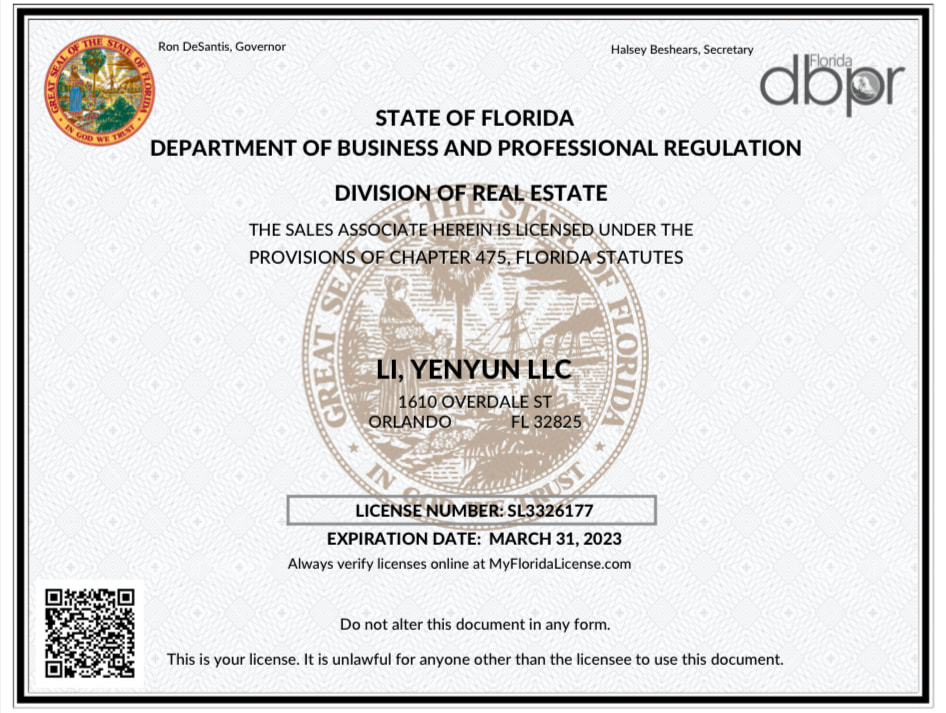
A career as a real estate agent is a great way to make a living, whether you're looking for a job or are just looking to change careers. The real estate industry is booming. It offers many options for those who want flexibility, freedom and the ability to set their own hours and make their money.
It's easy to obtain a Wisconsin real property license. You will first need to complete 72 hours state-approved Prelicensing coursework. This course can either be taken in person at an accredited school or online. After you have finished your coursework, you need to pass a final test before you can be licensed as a real estate agent in the state.
You will be learning a lot from your course, so it is crucial to have a good plan for studying. Kaplan Real Estate Education is our top choice for this. It offers several exam preparation packages and an easy to use performance tracker that will help you focus your study on the areas you need most.

It can be difficult to find a course that will help you earn your Wisconsin real estate license. However, there are many options, including livestream classes and online self-paced courses. It is up to you to choose the right course for you and how much time to study.
A brokerage that you are able to affiliate with is also important. There are many brokerages across the state. Each one offers its own culture, training, support and support. You can make a difference in your success as Wisconsin's real estate agent by choosing the right broker.
You will need clearance from the state if you have a criminal history before you can become licensed. To do this, you will need to complete the optional Application For Predetermination (#3085), and report any felonies or misdemeanors that are on your record. You can do this online or by post and it costs $68.
Once your background has been cleared, it's time to begin studying for the state examination. It takes approximately 240 minutes to complete the Wisconsin real estate exam. To pass, you must score at least 75%.

The multiple-choice exam covers many topics. Before you take the exam, the DSPS recommends that you read the candidate handbook. It contains important information about what to expect on test day.
In addition to the state exam, you'll need to complete 18 hours of Continuing Education every two years to keep your license active and in good standing. These courses can be found online or at local universities and colleges. You should also keep proof of your CE credit for 5 years, in case the DSPS audits.
FAQ
What should you think about when investing in real property?
It is important to ensure that you have enough money in order to invest your money in real estate. You can borrow money from a bank or financial institution if you don't have enough money. Also, you need to make sure you don't get into debt. If you default on the loan, you won't be able to repay it.
You must also be clear about how much you have to spend on your investment property each monthly. This amount must cover all expenses related to owning the property, including mortgage payments, taxes, insurance, and maintenance costs.
It is important to ensure safety in the area you are looking at purchasing an investment property. You would be better off if you moved to another area while looking at properties.
What time does it take to get my home sold?
It all depends on several factors such as the condition of your house, the number and availability of comparable homes for sale in your area, the demand for your type of home, local housing market conditions, and so forth. It may take 7 days to 90 or more depending on these factors.
What is a reverse loan?
Reverse mortgages allow you to borrow money without having to place any equity in your property. You can draw money from your home equity, while you live in the property. There are two types: conventional and government-insured (FHA). If you take out a conventional reverse mortgage, the principal amount borrowed must be repaid along with an origination cost. FHA insurance covers the repayment.
Can I purchase a house with no down payment?
Yes! There are many programs that can help people who don’t have a lot of money to purchase a property. These programs include government-backed mortgages (FHA), VA loans and USDA loans. More information is available on our website.
How can you tell if your house is worth selling?
Your home may not be priced correctly if your asking price is too low. Your asking price should be well below the market value to ensure that there is enough interest in your property. Our free Home Value Report will provide you with information about current market conditions.
How much money should I save before buying a house?
It depends on how much time you intend to stay there. It is important to start saving as soon as you can if you intend to stay there for more than five years. But, if your goal is to move within the next two-years, you don’t have to be too concerned.
How do I eliminate termites and other pests?
Your home will eventually be destroyed by termites or other pests. They can cause serious damage to wood structures like decks or furniture. It is important to have your home inspected by a professional pest control firm to prevent this.
Statistics
- Based on your credit scores and other financial details, your lender offers you a 3.5% interest rate on loan. (investopedia.com)
- Over the past year, mortgage rates have hovered between 3.9 and 4.5 percent—a less significant increase. (fortunebuilders.com)
- Private mortgage insurance may be required for conventional loans when the borrower puts less than 20% down.4 FHA loans are mortgage loans issued by private lenders and backed by the federal government. (investopedia.com)
- This means that all of your housing-related expenses each month do not exceed 43% of your monthly income. (fortunebuilders.com)
- When it came to buying a home in 2015, experts predicted that mortgage rates would surpass five percent, yet interest rates remained below four percent. (fortunebuilders.com)
External Links
How To
How to Manage a Rental Property
It can be a great way for you to make extra income, but there are many things to consider before you rent your house. This article will help you decide whether you want to rent your house and provide tips for managing a rental property.
Here are some things you should know if you're thinking of renting your house.
-
What should I consider first? Before you decide if your house should be rented out, you need to examine your finances. You may not be financially able to rent out your house to someone else if you have credit card debts or mortgage payments. Also, you should review your budget to see if there is enough money to pay your monthly expenses (rent and utilities, insurance, etc. It may not be worth it.
-
What is the cost of renting my house? It is possible to charge a higher price for renting your house if you consider many factors. These factors include your location, the size of your home, its condition, and the season. Keep in mind that prices will vary depending upon where you live. So don't expect to find the same price everywhere. Rightmove reports that the average monthly market price to rent a one-bedroom flat is around PS1,400. This would translate into a total of PS2,800 per calendar year if you rented your entire home. It's not bad but if your property is only let out part-time, it could be significantly lower.
-
Is this worth it? You should always take risks when doing something new. But, if it increases your income, why not try it? Be sure to fully understand what you are signing before you sign anything. Your home will be your own private sanctuary. However, renting your home means you won't have to spend as much time with your family. Make sure you've thought through these issues carefully before signing up!
-
Are there benefits? There are benefits to renting your home. You have many options to rent your house: you can pay off debt, invest in vacations, save for rainy days, or simply relax from the hustle and bustle of your daily life. No matter what your choice, renting is likely to be more rewarding than working every single day. If you plan ahead, rent could be your full-time job.
-
How can I find tenants? Once you decide that you want to rent out your property, it is important to properly market it. Listing your property online through websites like Rightmove or Zoopla is a good place to start. After potential tenants have contacted you, arrange an interview. This will enable you to evaluate their suitability and verify that they are financially stable enough for you to rent your home.
-
How do I ensure I am covered? If you fear that your home will be left empty, you need to ensure your home is protected against theft, damage, or fire. In order to protect your home, you will need to either insure it through your landlord or directly with an insured. Your landlord will likely require you to add them on as additional insured. This is to ensure that your property is covered for any damages you cause. If your landlord is not registered with UK insurers, or you are living abroad, this policy doesn't apply. In such cases you will need a registration with an international insurance.
-
If you work outside of your home, it might seem like you don't have enough money to spend hours looking for tenants. But it's crucial that you put your best foot forward when advertising your property. Post ads online and create a professional-looking site. Also, you will need to complete an application form and provide references. While some people prefer to handle everything themselves, others hire agents who can take care of most of the legwork. In either case, be prepared to answer any questions that may arise during interviews.
-
What happens once I find my tenant If there is a lease, you will need to inform the tenant about any changes such as moving dates. If this is not possible, you may negotiate the length of your stay, deposit, as well as other details. While you might get paid when the tenancy is over, utilities are still a cost that must be paid.
-
How do you collect rent? When it comes to collecting the rent, you will need to confirm that the tenant has made their payments. If not, you'll need to remind them of their obligations. Before you send them a final invoice, you can deduct any outstanding rent payments. If you are having difficulty finding your tenant, you can always contact the police. They will not usually evict someone unless they have a breached the contract. But, they can issue a warrant if necessary.
-
How can I avoid potential problems? Although renting your home is a lucrative venture, it is also important to be safe. Ensure you install smoke alarms and carbon monoxide detectors and consider installing security cameras. Check with your neighbors to make sure that you are allowed to leave your property open at night. Also ensure that you have sufficient insurance. You must also make sure that strangers are not allowed to enter your house, even when they claim they're moving in the next door.